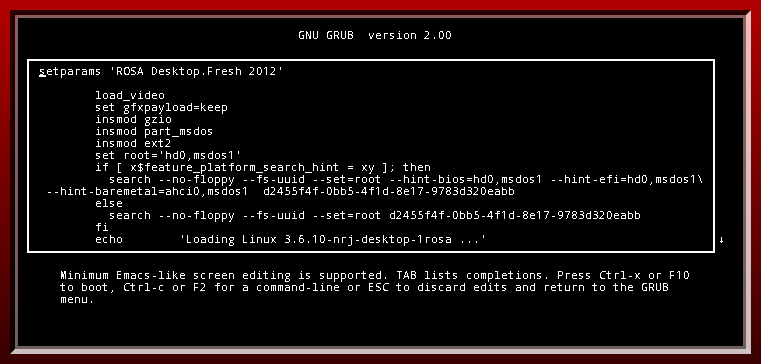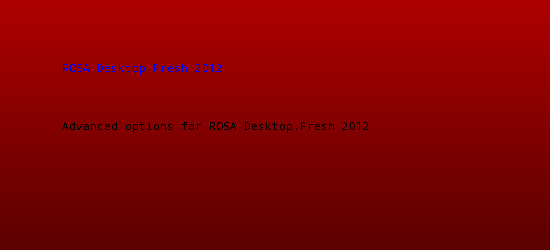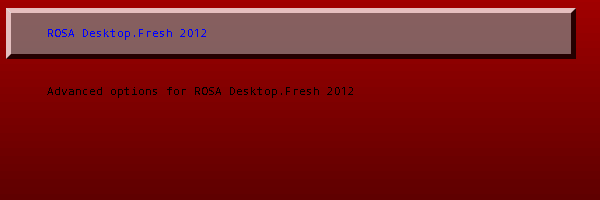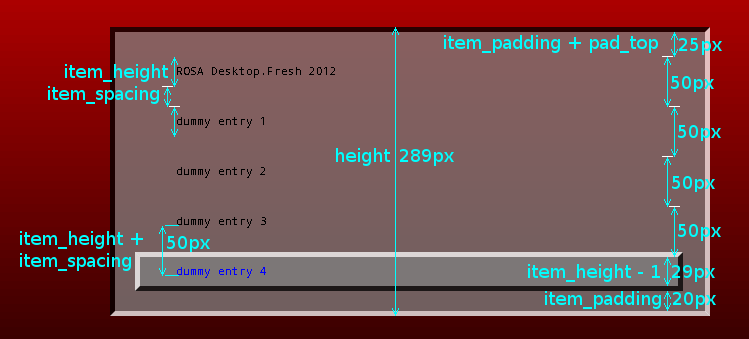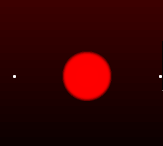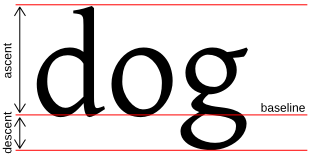User:Vasily.podvornyak
Овормление загрузчика Grub2 2.00
Бороздя просторы большой сети, мне не посчасливилось найти подробного руководства по созданию тем оформления загрузчика GRUB2, которое бы помогло мне понять смысл каждого значения и каждой переменной на конкретных примерах. Несмотря на это, создавая тему оформления, вы хотите получить конкретный результат. Так, что-бы каждая точка оформления находилась там, где вам хотите. Вот я и решил написать такое руководство, пока просматривал исходный код. Цель данного руковдства представить каждую возможность графического оформления, показать особенности и ограничения в офомлении загрузчика GRUB2, представить план по созданию новой темы, с точностью до каждого пикселя.
Contents
- 1 С чего начать
- 2 Общие понятия
- 3 Описание тестовой схемы
- 4 Свойства элементов
- 4.1 Основные свойства
- 4.2 Корневой элемент
- 4.3 Загрузочное меню - boot_menu
- 4.3.1 Координаты и размеры прямоугольной области элементов меню - left, top, width, height
- 4.3.2 Шрифт и цвет для элеметов меню - item_color, item_font, selected_item_color, selected_item_font
- 4.3.3 Оформление елементов меню - seleted_item_pixmap_style, item_pixmap_style
- 4.3.4 Оформление меню - menu_pixmap_style
- 4.3.5 Отступы - item_padding
- 4.3.6 Составление елементов меню - height, item_height, item_spacing
- 4.3.7 Иконки и их расположение - icon-width, icon-height, item_icon_space
- 4.3.8 Использование иконок
- 4.3.9 scrollbar_frame, scrollbar_thumb, scrollbar_width, scrollbar - scrollbar settings
- 4.3.10 visible - don't show boot menu
- 4.4 progress_bar - Horizontal indicator of elapsed time
- 4.4.1 left, top, width, height - coordinates of the rectangle
- 4.4.2 id - identificator
- 4.4.3 text - text, displayed on the progress bar
- 4.4.4 text-color, font - color and font of the text
- 4.4.5 Mono-color and graphical modes of decoration
- 4.4.6 bg_color, fg_color, border_color - for mono-color mode
- 4.4.7 bar_style, highlight_style - for graphical mode
- 4.4.8 Remove decoration
- 4.4.9 visible - do not show progress bar
- 4.5 circular_progress - Circular indicator of elapsed time
- 4.6 label - a string of text
- 4.7 image - Image
- 4.8 vbox - vertical container
- 4.9 hbox - horizontal container
- 4.10 canvas - Canvas
- 5 Common feautures
- 6 Font creation guide
- 7 Parameters which are set outside of theme.txt
С чего начать
И так, мы хотим создать оформление для загрузчика. Давайте пройдём этот путь шаг за шагом.
Создай дирректорию
Сначала, создайте пустую папку для файлов новой темы оформления. /boot/grub2/themes/ (примечание, предпологается что загрузчик установлен в папку /boot/grub2/)
Так-же - желательно создать подпапку в этой папке /boot/grub2/themes/ Пусть это будет папка /boot/grub2/themes/test/
Создай текстовый файл
Мы должны создать основной файл оформления в только что созданной папке.
Желательно назвать файл theme.txt.
И так - создайте файл /boot/grub2/themes/test/theme.txt (в дальнейшем, theme.txt или основной файл оформления)
Свойство GRUB_THEME в /etc/default/grub
Что-бы загрузчик включил наше офрмление нужно установить свойство GRUB_THEME в файле /etc/default/grub.
Иначе говоря, мы должны написать строку GRUB_THEME=/boot/grub2/themes/test/theme.txt.
После знака "=" нужно написать абсолютный путь к основному файлу оформления.
Если строка GRUB_THEME=... уже присутствует в файле/etc/default/grub,
нужно переписать её, что-бы она выглядела так GRUB_THEME=/boot/grub2/themes/test/theme.txt.
Не должно быть двух одинаковых строк с одинаковыми параметрами.
Файл настроек загрузчика /boot/grub2/grub.cfg
Изменения в этом файле не будут применены пока мы не перезапишем настроки загрузчика.
Обычно, в системе есть скрипт update-grub2. Он должен быть запущен с правами root.
В случае если такого скрипта нет в системе нужно запустить команду grub2-mkconfig -o /boot/grub2/grub.cfg с правами root.
Скрипт update-grub2 выполняет точно такю команду.
Скрипт update-grub2 нужно вызывать всякий раз когда мы вносим изменения в настройки Grub2 /etc/default/grub.
Большинство установок оформления Grub2 описываются в файле theme.txt. Загрузчик Grub2 всякий раз при запуске проверяет этот файл и читает из него настройки. Поэтому мы должны перезапускать машину всякий раз,что-бы увидеть результат наших изменений в файле theme.txt или изменений в папке темы. Скрипт update-grub2 записывает путь к файлу настроек оформления в файл настроек загрузчика.
Общие понятия
Начинаем изучать Синтаксис файла оформления.
Каждый параметр имеет определённый тип.
Вы можете прочитать о типах данных тут.
Заметьте, что имена общих(глобальных) свойств(параметров) и их значений(компонентов) строго определённы. Если будет допущена синтаксическая ошибка в названии свойства или было выбрано недопустимое свойство, то во время запуска на экран будет выведенна ошибка. Если же было выбрано неверное значение, то оно не будет примено к свойству и сообщение об ошибке не будет выведено на экран.
Типы элементов
Есть несколько определённых типов:
- Корневой элемент
- Верхний уровень theme.txt. Здесь устанавливаются общие свойства.
- Меню загрузки (boot_menu)
- Главный элемент. Здесь устанавливаются свойства загрузочного меню.
- Горизонтальный индикатор отсчёта (progress_bar)
- Индикатор оставшегося времени до загрузки раздела меню указанного по умолчанию. Используется горизонтальная панель и текст.
- Круговой индикатор отсчёта (circular_progress)
- Индикатор оставшегося времени до загрузки раздела меню указанного по умолчанию. Используется круговая анимация.
- Текстовая строка (label)
- Отображает текстовую строку.
- Изображение (image)
- Отображает картинку.
- Вертикальный ящик (vbox)
- Элемент содержащий другие элементы. Отображает элементы столбцом, один за другим, сверху вниз.
- Горизонтальный ящик (hbox)
- Элемент содержащий другие элементы. Отображает элементы в строку, один за другим, слева направо.
- Холст (canvas)
- Элемент содержащий другие элементы. Для каждого элемента холста должны быть указаны собственные координаты позиции и размера.
Корневой элемент это экземпляр элемента типа "холст" с некоторыми дополнительными параметрами. Он занимает всё пространство экрана.
Изображения
Если указанный размер изображения больше размера изображения в файле, то катринка растягивается до уканных размеров. Наименьший размер изображения - размер изображения в файле.
Вам следует помнить эту особенность при выборе изображения для фона. Есть разные типы дисплеев. Одно и то-же изображение может по разному выглядеть на дисплеях с разным отношением сторон (4:3 и 16:9).
Если изображением является логотип, то стоит использовать абсолютные значения для параметров ширины и высоты, что-бы избежать искривлений в изображении.
Чаще всего растяжение изображения используется в различных градиентах. К примеру, вы можете использовать картинку гарадиентной заливки шириной в одну точку (1px).
Графическое оформление
Графическое оформление элемента состоит из 9-и областей - центальная, южная, юго-западная, западная и так далее.
Изображения 4-х угловых областей (таких как северо-запад) не растягиваются.
Восточная и западная области растягиваются по вертикали.
Северная и южная области растягиваются по горизонтали.
Центральная область растягивается и по горизонтали и по вертикали.
Если в оформлении есть угловые области, то в оформлении должны быть и боковые области соединённые с угловой. Например, если есть северо-западная область, то так-же должны быть северная и западная области. Более того, значения размера угловой области должны быть равны соответствующим значениям боковых областей. В нашем примере, высота северо-западной области должна быть равна высоте северной области а ширина должна равняться ширине западной области.
Шрифты
Шрифт создаётся при помощи специальной программы grub2-mkfont. Более подробную информацию о программе смотрите в статье "Руководство по созданию шрифта"
Описание тестовой схемы
Элементы оформления
Увеличены в пять раз для лучшего понимания. Тёмно-красный фон - для ясности. Альфа-канал - 75%. (прозрачность)
Элемент графического оформления
| |
|
|
| |
|
|
| |
|
|
Элемент графического оформления
| |
|
|
| |
|
|
| |
|
|
Оформление загрузочного меню
| |
|
|
| |
|
|
| |
|
|
Фоновые изображения полосы прокрутки

|
| |

|
Изображения полосы прокрутки
| |
| |
| |
Оформление горизонтального индикатора
| |
Изображения
Центральное изображение кругового индикатора

|
Изображение одного такта кругового индикатора
| |
Свойства элементов
Полное описание значений свойств с картинками и схемами.
Основные свойства
left, top, width, height - координаты позиции и размеров прямоугольника, содержащего элемент.
id - Использование определённого значения для индефикатора элемента, изменяет способ его отображения. Использование неонпеделённого значения не изменяет ничего.
Корневой элемент
Корневой элемент это элемент содержащий все элементы оформления. Так-же он содержит некоторые общие(глобальные) свойства(параметры). Корневой элемент это расширенный элемент типа "холст".
Заметьте, имена общих свойств содержат символ минуса ("-", например "terminal-box"), а свойства элементов содержат символ подчёркивания ("_", например "item_height"). Ещё заметьте, что общие свойства используют двоеточие в качестве разделителя (":", например "title_text: "GNU Grub""), а свойства элементов используют знак равенства в как разделитель ("=", например "item_height = 20").
Фон - desktop-color, desktop-image
Первое свойство desktop-color - цвет фона. Второе desktop-image - изображение фона.
Если установленно свойство desktop-image, то свойство desktop-color не используется.
Изображение должно находиться в папке темы оформления. /boot/grub2/themes/test/
Изображение растягивается на всю область экрана.
Настройки заголовка - title-text, title-color, title-font
Оформление заголовка. Если зголовок не нужен, то установите значение свойства пустым title-text="".
Заголовок всегда расположен по центру экрана на высоте 40 + ascent от верхней границы экрана. (смотри Руководство по созданию шрифта)
title-text: "Title Text" title-color: "#FFFFFF" desktop-image: "background.png"
Оформление консоли - terminal-box
Графическое оформление консоли.
Оформление отображается ВНЕ(за границами) прямоугольной области консоли. Координаты консоли постоянны и зашиты в загрузчик. Они могут быть изменены при помощи заплатки. (смотри ниже)
Заметьте, что консоль отображается в центральной области оформления с отступом по 3 точки от краёв.
Фон консоли устанавливается в /etc/default/grub. (смотри ниже)
Изображение для консоли не должно содержать прозрачность (альфа-канал).
По умолчанию фон будет чёрным.
Консольный шрифт - terminal-font
Имя шрифта использующегося для консоли.
После добавления нового шрифта в папку оформления должна быть запущена команда update-grub2.
Смотрите подробнее о создании шрифта
title-text: "" desktop-image: "background.png" terminal-font: "Droid Sans Mono Regular 11" terminal-box: "inbox_*.png"
Далее, общие свойства остаются неизменными.
Неиспользуемое - message-font, message-color, message-bg-color
Эти параметры могут быть установленны, но они не используются.
Основной элемент. Отображает список установленных операционных систем. Выбор системы для загрузки.
Координаты и размеры прямоугольной области элементов меню - left, top, width, height
Обязательные свойства. Не забывайте их задавать.
Шрифт и цвет для элеметов меню - item_color, item_font, selected_item_color, selected_item_font
Ползователб нужно видеть какой элемент меню выбран, по этому необходимо как-то подсветить выбранный элемент. Можно использовать шрифт, цвет или графическое оформление. item_color, item_font - цвет и шрифт неактивного элемента меню. selected_item_color, selected_item_font - цвет и шрифт выбранного элемента.
+ boot_menu {
left = 50%-300
top = 50%-100
width = 600
height = 300
selected_item_color = "#0000FF"
}
Смотрите подробнее о создании шрфта в руководстве Создание шрифта.
Оформление елементов меню - seleted_item_pixmap_style, item_pixmap_style
Оформление отображается ВНЕ элемента меню, за границами прямоугольной области, заданной координатами.
По умолчанию графическое оформление устанавливается только для активного элемента меню. В ROSA Вы можете установить графическое оформление для неактивных элементов меню.
Давайте определим размер рамки активного элемента как pad_left, pad_top, pad_right и pad_bottom. Общая высота элемента тогда составит item_height + pad_top + pad_bottom - 1.
Необходимо при расчете уменьшать значение на 1-у точку, что-бы достичь желаемого размера элемента меню.
+ boot_menu {
left = 50%-300
top = 50%-100
width = 600
height = 300
selected_item_color = "#0000FF"
selected_item_pixmap_style = "button_*.png"
}
Оформление меню отображается ВНУТРИ, определённого координатами прямоугольника. Размер оформления расчитывается из количества элементов меню. (элементы меню отображаются в центральной области оформления) Несколько сложнее размер расчитывается при использовании панели прокрутки. (смотри ниже)
Отступы - item_padding
Устанавливает печатную область для элементов загрузочного меню - прямоугольник, внутри центральной области графического оформления (или всей области элемента меню если не установленно оформление), с отступом item-padding от каждой стороны области (или сторон всего елемента если не установленно оформление).
Заметьте, что item_padding не меняет отображения панели прокрутки. Изменяйте вместе и графическое оформление меню и оформление панели прокрутки, если нужно изменить отступы для панели прокрутки (например вы можете добавить прозрачные точки к изображениям соответствующих областей).
Составление елементов меню - height, item_height, item_spacing
Расстояние между нижними границами элементов меню всегда равно item_height + item_spacing. (смотри картинку)
Заметьте, что в формулу расчёта расстояния между элементами включены размеры рамки оформления меню и свойствоitem_padding, но исключены свойства pad_top и pad_bottom. (смотри картнку)
Свойство меню height расчитывается по формуле: 2*item_padding + menu_pad_top + menu_pad_bottom + (N - 1)*(item_height + item_spacing) + pad_top + pad_bottom + item_height - 1, где N - это число элементов которые дожны быть видны в списке меню.
Так-же обратите внимание, что количество видимых элементов в меню N не может быть меньше 3-х.
Если высота меню меньше размера расчитаного по этой формуле, количество элементов меню достаточно велико и выбран самый нижний элемент меню, тогда графическое оформление выбранного элемента не отобразится полностью. Если же высота меню больше, елементов меню достаточно и выбран самый нижний элемент, тогда нижняя граница панели прокрутки не будет отображаться вровень с оформлением нижнего(выбранного) элемента меню.
+ boot_menu {
left = 50%-300
top = 50%-100
width = 600
height = 289
selected_item_color = "#0000FF"
selected_item_pixmap_style = "button_*.png"
menu_pixmap_style = "inbox_*.png"
item_padding = 20
item_spacing = 20
item_height = 30
}
Высота расчитана согласно приведённой формуле.
Иконки и их расположение - icon-width, icon-height, item_icon_space
По умолчанию,
icon_width = 32 icon_height = 32 item_icon_space = 4
Текст отображается исходя из отступа icon_width + item_icon_space от левой границы элемента. Другими словами, независимо от того отображается ли иконка - с левой стороны всегда зарезервированно для неё поространство.
Если такое поведение нежелательно вы можете установить для свойства icon_width значение null и выставить желаемое значение размера иконки item_icon_space. Так-же, обратите внимание на то, что после этих установок ширина элемента меню уменьшится на 2-е точки. Если вы не зададите новый размер - это станет видно возле правой области оформления. С правой стороны центральной области элемента появится пустое пространство шириной в две точки.
Заметьте, что символы шрифта могут содержать пустые точки с любой стороны. К примеру в нашей тестовой схеме, расстояние от левой границы элемента равно 36-и точкам по умолчанию (icond_width + item_icon_space). Но у нас, расстояеие до ближней точки первого символа, равно 37-и точкам.
Использование иконок
Если вы хотите использовать иконки вам необходимо создать папку image в папке темы. После этого сохраните иконки в формате png и положите их в эту папку. Имена файлов иконок должны соответствовать определённым классам.
Базовые классы:
- windows > os
- gnu-linux > gnu > os
- osx > darwin > os
- hurd > gnu > os
Классы с высоким приоритетом находятся слева. Если иконка windows.png присутствует, то она будет отображена, а иконка os.png - нет.
Main system's class (equal to it's name) will be available also. (main system in this case - is the system where update-grub2 script was called). This class is more important than gnu-linux.
E.g. for ROSA system this class will be "rosa" etc. You can find classes in the file /boot/grub2/grub.cfg.
With patch applied to ROSA, such class will be shown for every other installed OS on the particular computer.
scrollbar_frame, scrollbar_thumb, scrollbar_width, scrollbar - scrollbar settings
Let's see detailed information about scrollbars.
- Do not use slices different from north, south and center for scrollbar_thumb.
- You could use all 9 slices for scrollbar_frame.
- You can increase padding from any side of the scrollbar by adding transparent pixels to the corresponding slice.
- Scrollbar is drawn to the right of the center slice. So, if we don't have menu's graphical decoration or there isn't east slice in the menu's graphical decoration we won't see scrollbar even if it's needed.
- Scrollbar is drawn only if needed.
- Note that width of the boot menu is decreases by 2 pixels (from maximum width). Because of that distance between menu items and the scrollbar is always at least 2 pixels.
- You have to set both scrollbar_frame and scrollbar_thumb. If one of these parameters isn't set you won't see the scrollbar.
- Width of scrollbar_frame and width of scrollbar_thumb can be different.
- scrollbar_frame is drawn in the east slice of menu's graphical decoration. scrollbar_thumb is drawn entirely in the center slice of scrollbar_frame.
- scrollbar_width - width of the scrollbar. It means width of the central part of scrollbar_frame. If sum of scrollbar_width and widths of east and west slices of scrollbar_frame are less than width of the east slice of menu's graphical decoration, then the scrollbar won't be drawn completely.
- You could set value False for scrollbar. In that case the scrollbar won't be shown. Alternative: just don't set parameters scrollbar_thumb and scrollbar_frame.
- As it was said before, item_padding don't affects the scrollbar.
In this example there are no additional pixels for the scrollbar in the east slice of menu's graphical decoration.
+ boot_menu {
left = 50%-300
top = 50%-100
width = 600
height = 289
selected_item_color = "#0000FF"
selected_item_pixmap_style = "button_*.png"
menu_pixmap_style = "inbox_*.png"
item_padding = 20
item_height = 30
item_spacing = 20
scrollbar_thumb = "scrollbar_thumb_*.png"
scrollbar_frame = "scrollbar_frame_*.png"
scrollbar_width = 10
}
As we can see, scrollbar isn't completely drawn.
In this example we have changed menu's graphical decoration. We'll use this configuration of the boot menu hereinafter. boot_menu.
+ boot_menu {
left = 50%-300
top = 50%-100
width = 600
height = 289
selected_item_color = "#0000FF"
selected_item_pixmap_style = "button_*.png"
menu_pixmap_style = "menu_*.png"
item_padding = 20
item_height = 30
item_spacing = 20
scrollbar_thumb = "scrollbar_thumb_*.png"
scrollbar_frame = "scrollbar_frame_*.png"
scrollbar_width = 10
}
Now the scrollbar is correctly displayed. Also we can see that item_padding does not affect the scrollbar.
We can set value False for the visible property. That way the boot menu won't be shown. Alternative: do not describe boot_menu component in the main theme file.
progress_bar - Horizontal indicator of elapsed time
This element displays elapsed time to execution of the default entry.
Progress starts from non-zero length.
left, top, width, height - coordinates of the rectangle
Standard parameters. Don't forget to set them.
Note that if width or height is less than needed to display the given text then width or height will be auto-increased.
id - identificator
To display countdown (visually or textually) you should set predefined value to id.
id = "__timeout__"
text - text, displayed on the progress bar
Text to output on the countdown indicator. There are several predefined special values. They have special meaning and are translated to different languages.
- @TIMEOUT_NOTIFICATION_SHORT@ for "Ns"
- @TIMEOUT_NOTIFICATION_MIDDLE@ for "Ns remaining."
- @TIMEOUT_NOTIFICATION_LONG@ for "The highlighted entry will be executed automatically in Ns."
N is an amount of seconds to execution of the default entry. The string is updated every second. Also you can set any constant text value.
text-color, font - color and font of the text
Font and font color of the text string, printed on the indicator.
See more about font's creating in font creating
Mono-color and graphical modes of decoration
There are 2 options of decoration:
- mono-color mode, with areas filled with fixed colors and 1px border
- graphical mode, with graphical decorations
If one of the options for graphical decoration is used then will be turned on the second option. Otherwise the first option will be used.
See detailed information below.
bg_color, fg_color, border_color - for mono-color mode
+ progress_bar {
left = 50%-300
top = 50%+200
width = 600
height = 50
id = "__timeout__"
text = "@TIMEOUT_NOTIFICATION_LONG@"
border_color = "white"
}
Default value are used in this example:
bg_color = "128, 128, 128" fg_color = "200, 200, 200"
bar_style, highlight_style - for graphical mode
Note, it is recommended to use only central slice for the highlight_style parameter. Otherwise the countdown indicator will be shown incorrectly.
Note, using of any of these parameters turns on the graphical mode.
+ progress_bar {
left = 50%-300
top = 50%+200
width = 600
height = 50
id = "__timeout__"
text = "@TIMEOUT_NOTIFICATION_LONG@"
bar_style = "inbox_*.png"
highlight_style = "progress_*.png"
}
Remove decoration
If you'd like to remove decorations so only the text string will be shown you should set equal values to bar_styly and highlight_style.
The value can be any text value. This is not necessary for the value to be the name of some real graphical decoration.
The value must include the symbol "*".
In the following example text color is "white".
+ progress_bar {
left = 50%-300
top = 50%+200
width = 600
height = 50
id = "__timeout__"
text = "@TIMEOUT_NOTIFICATION_LONG@"
text_color = "white"
bar_style = "*"
highlight_style = "*"
}
visible - do not show progress bar
You could set the value False to this parameter. That way progress bar won't be shown. Alternative: just don't use progress_bar element in the main theme file.
circular_progress - Circular indicator of elapsed time
Circular indicator of elapsed time shows graphically the elapsed time to executing the default entry.
Elapsed time is displayed with drawing ticks.
If ticks_disappear isn't set then ticks are appearing (along the circumference, clockwise) until the circle is completed.
If ticks_disappear is set then ticks are disappearing.
Number of drawn ticks is always decreased by 1. Some ticks can be drawn at the first state. (circular indicator starts filling from non-zero value)
left, top, width, height - coordinates of the rectangle
Standard parameters. Don't forget to set them.
It is recommended to set similar value to width and to height. Detailed information about rectangle coordinates features see below.
id - identificator
To display countdown you should set predefined value to id.
id = "__timeout__"
center_bitmap, tick_bitmap - images for the circular progress indicator
Central image neither scaled or turned. It's drawn in the center of the desired rectangle of the element. If the image is less than the rectangle then part of the image won't be drawn. It's the background of the indicator.
Tick image also doesn't scaled or turned. It's drawn multiple times circumferential. The circle is inscribed into the desired rectangle.
It's recommended to use square images (height and width are the same).
Calculations use elements' width and tick's width.
If width of the element is greater then it's height then some ticks won't be drawn.
It tick's height is greater then it's width then ticks won't be completely drawn.
It's recommended to make tick's width the same parity as element's width. (only in that case we will have correct symmetrical displaying)
num_ticks, start_angle, ticks_disappear - circular progress settings
num_ticks - The number of ticks to make a full circle.
start_angle - The starting angle. (starting from x-axis). It's measured in "parrots". One "parrot" - 1/256 of the full circle. That way -90 degree (or -π/2) will be -64 "parrots".
tick_bitmap is drawn without any changes (no turning, no scaling etc) and angles are measured (in the algorithm) in "parrots" so it's recommended to set num_ticks with values equal to n-th power of 2. That way we will have smooth and symmetrical picture.
ticks_disappear - by default ticks are appearing.
You could set value True for ticks_disappear parameter. In this case ticks will disappear until none of them are present.
ticks_disappear = "True"
Note, that number of drawn ticks is alway decreased by 1.
Example
+ circular_progress {
left = 50%-450
top = 50%+310
id = "__timeout__"
width = 51
height = 51
center_bitmap = "center.png"
tick_bitmap = "tick.png"
num_ticks = 8
}
label - a string of text
We can display a line of text using label element.
If special values for id and text are set then elapsed time to execution of the default entry will be shown.
Note that there is not line-breaking mechanism. If printing length of the text line is greater then rectangle's width will be increased.
left, top, width, height - coordinates of the rectangle
Standard parameters. Don't forget to set them.
Note that width is used only for aligning the text if align parameter have value of "center" or "right".
Note also that height isn't used.
font, color - color and font of the text
Font and color of the text.
See more about font's creating in font creating
align - aligning
Three correct values are available:
- left - align the text by the left edge of the element
- center - align the text by center of the element
- right - align the text by the right edge of the element
Show elapsed time to booting the default item
To show the elapsed time we should set special value of id and the parameter text should not be present in the description of the element in the main theme file.
+ label {
left = 50%-350
top = 50%+260
height = 30
width = 30
id = "__timeout__"
color = "white"
}
text - shown text
We can output any text message. There are several special values:
- @KEYMAP_SHORT@ for "enter: boot, `e': options, `c': cmd-line"
- @KEYMAP_MIDDLE@ for "Press enter to boot the selected OS, `e' to edit the commands before booting or `c' for a command-line."
- @KEYMAP_LONG@ for "Press enter to boot the selected OS, `e' to edit the commands before booting or `c' for a command-line. ESC to return previous menu."
Special values are translated to the language, used in GRUB.
Note that there is no line-breaking mechanism and text line's width isn't limited.
Example with common value of text
+ label {
left = 50%-300
top = 50%+220
height = 30
width = 600
color = "white"
align = "right"
text = "Some text."
}
Example with special value of text
+ label {
left = 50%-300
top = 50%+220
height = 30
width = 600
color = "cyan"
align = "center"
text = "@KEYMAP_SHORT@"
}
image - Image
An image can be displayed on the screen.
If image's height is less than defined height, then defined height will be set to the image's real height. The same works for the image's width.
If defined width or height are greater than image's real width or height (correspondingly) then the image will be stretched to the defined size.
left, top, width, height - coordinates of the rectangle
Standard parameters. Don't forget to set them.
If you'd like to display unchanged image just don't set width and height parameters - they will be set automatically.
file - full path to the image file
Full path to the image file.
vbox - vertical container
Container. Parent element which contains other elements.
left, top, width, height - coordinates of the rectangle
Don't forget to set left and top parameters. height and width are ignored and will be redefined so you don't need to set them.
Composition of contained elements
Elements, contained in the vertical box are shown consequentially from top to bottom.
You don't need to set left and top parameters for child elements - these values won't be taken into account.
Maximum of child elements' widths is being counted, then all widths (widths of every child element and the container) vertical are set with the resulting value.
Values of child elements' heights aren't change.
Example
+ vbox {
left = 50%+310
top = 50%-50
width = 20
height = 100
#D1
+ image { left = 50 top = 10 width = 60 height = 60 file = "center.png" }
#D2
+ image { left = 40 top = 20 width = 70 height = 70 file = "button_n.png" }
}
hbox - horizontal container
Container. Parent element which contains other elements.
left, top, width, height - coordinates of the rectangle
Don't forget to set left and top parameters. height and width are ignored and will be redefined so you don't need to set them.
composition of contained elements
Elements, contained in the horizontal box are shown consequentially from left to right.
You don't need to set left and top parameters for child elements - these values won't be taken into account.
Maximum of child elements' heights is being counted, then all heights (heights of every child element and the container) are set with the resulting value.
Values of child elements' widths won't change.
Example
+ hbox {
left = 300
top = 50%+310
width = 20
height = 100
#D1
+ image { left = 50 top = 10 width = 60 height = 60 file = "center.png" }
#D2
+ image { left = 40 top = 20 width = 70 height = 70 file = "button_n.png" }
}
canvas - Canvas
Container. Parent element which contains other elements. Child elements' coordinates are relative. That way, (0,0) for a child element is coordinates of top left corner of the container.
Root element is an instance of canvas.
left, top, width, height - coordinates of the rectangle
Standard parameters. Don't forget to set them.
Common feautures
Common features not related to some concrete subject.
Elements' drawing order
Elements are drawn consequently from top to bottom in a vertical box.
Elements are drawn consequently from left to right in a horizontal box.
Child elements for a canvas are drawn in reverse order. If element A in placed before element B in the main theme file then A will be drawn after B.
Element's drawing zone
There is drawing area defined for each element. It is set with parameters left, top, width, height.
Everything that crosses the defined area won't be drawn.
Element's minimal size
Each element have a function for determination of the minimal size of the rectangle enough to draw this element. If defined width (height) is less then minimal width (height) then defined width (height) will be redefined to the minimal value.
What if number values are incorrect
Description of numeric values.
Note, that absolute and relative values are counted relative to the parent container.
Lets call width and height of the parent container parent_width and parent_height correspondingly.
It left or top are negative - it will be redefined to 0.
If left + width is greater than parent_width then width will be redefined to parent_width - left. That way, right edge of the element will match right edge of the parent container.
If top + height is greater than parent_height then height will be redefined to parent_height - top. That way, bottom edge of the element will match bottom edge of the parent container.
We can use this features to achieve different composition of elements on different screen resolutions.
Choosing of symbol
The font of an element is described in the main theme file. If the desired font hasn't been found or the desired symbol isn't contained in the desired font - the most appropriate symbol from another font (present in the theme) will be used.
For example border symbols aren't present in some fonts. If we've selected such font to be the font of the console then border symbols will be taken from another font. Knowing this feature help to avoid confusion about unexpected results (e.g. dashed border or question mark symbols in place of the border)
Font creation guide
GRUB uses it's own font format. Needed font can be created using the utility grub-mkfont
After the font has been created and placed into the theme's directory, utility grub2-update should be executed so the changes will be applied.
Create font using grub2-mkfont
GRUB don't use kerning (changes of the distance between the symbols in case of some character combinations).
File, resulting from execution of the utility should necessarily have the extension .pf2
Syntax:
grub2-mkfont INPUT_FONT [optional parameters] -o OUTPUT_FONT
Resulting file should be placed into the theme directory.
Parameters of grub2-mkfont
--output, -o
Necessary parameter. The name of the resulting file. Should have extension .pf2 so the font can be used by GRUB.
--verbose, -v
grub2-mkfont DroidSansMono.ttf -o tmp.pf2 -v
Font name: Droid Sans Mono Regular 16 Max width: 13 Max height: 17 Font ascent: 17 Font descent: 5 Number of glyph: 591
Display information about the created font.
Displays name, maximum width and height, ascent and descent of the font, quantity of symbols.
--name, -n
Set the font's name.
By default, font's name is auto-created with template: FONT_NAME TYPE SIZE
--size, -s
Set the font's size in pixels.
The value is 16 by default.
--bold, -b
Output bold font.
It is normal by default.
ascent, descent of the font
--asce, -c
ascent of the font (see picture)
--desc, -d
descent of the font (see picture)
We can set these parameters to achieve larger \ lesser line spacing, to align the baseline (see picture). If we are going to set these parameters we should watch carefully that every needed symbol is correctly displayed.
Select range of symbols to encode
We can set a range of symbols to encode.
--ascii-bitmaps
to encode only ascii symbols
--range, -r
to encode the given range of symbols
Parameters which are set outside of theme.txt
Options, which are set outside of the main theme file.
/etc/default/grub File
GRUB_THEME
Full path to the main theme file.
GRUB_BACKGROUND
Full path to the background image of the console. This file should be non-transparent. It's stretched to the sizes of the console. (note the 3px border)
LANG и LANGUAGE
If you'd like to set a language used in GRUB you should set both this parameters to the same value.
Different syntax can be used: en, en_US, en_US.UTF-8.
Vladimir Testov, ROSA, 2013.

